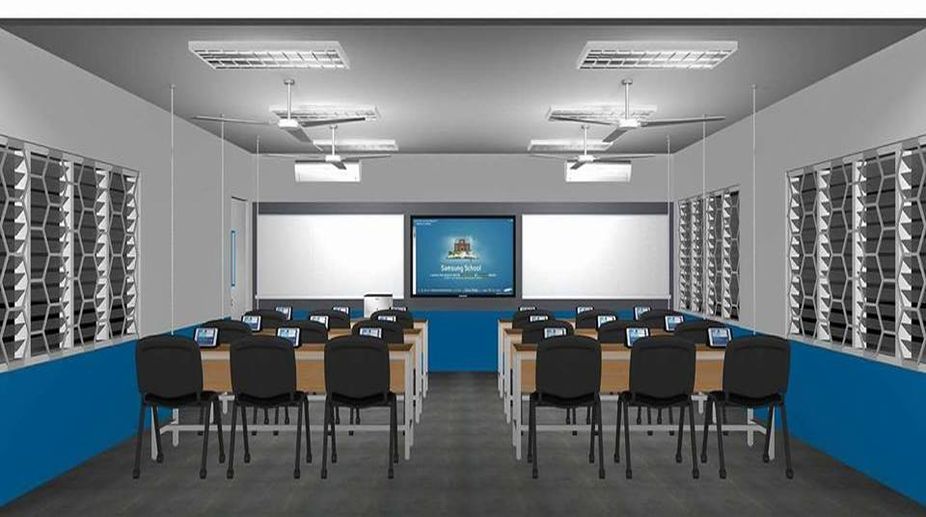Delhi Police launches ‘Cyber Uday 2.0’ to promote digital literacy
This programme is in continuation of ‘Cyber Uday 1.0’ initiative, started in 2019 by the Cyber Prevention Awareness Detection (CyPAD) unit of the Delhi Police.

(Photo: Facebook)
If traditional education system is spiced up with little digital literacy, it can give some fruitful results. This was evident in Jawahar Navodoya Vidhalaya, Noida, where a Class IX student developed an app on his own. Thanks to a smart class project, students’ grasping power has increased many folds, and there is improvement in school-leaving results.
Not only this, teachers also find it easy to explain concepts to the students with the help of videos and images. The Samsung Smart Class project helped classrooms to be equipped with computers and Internet. As a part of their CSR activities, the South Korean tech giant, in collaboration with Jawahar Navodaya Vidyalaya schools, provides technical equipment to every Samsung Smart Class. Started in 2013, under this programme each classroom has Samsung tablets or laptops, Wi-Fi connection, interactive Samsung Smartboard and power backup. “The project was started in 2013, with the purpose of giving digital literacy to the students, especially rural students,” informed the spokesperson of Samsung Smart Class.
Advertisement
“Compared to their urban counterparts, students are getting an equal platform to study and learn more through advanced interactive technologies offered through Samsung Smart Class.” The purpose of this programme is to promote digital education among underprivileged students as they are those who remained untouched by the growing technology. Under this programme, one can find many visually-attractive methods of teaching, videos and presentations that appeal to students and help them retain information quickly and more effectively.
Advertisement
“Usually these students, when they freshly graduate from schools or colleges and enter their professional life, face challenges as they are not well-versed with computers. With this programme, they are at par with their urban counterparts in digital literacy,” said the spokesperson.
Under this programme, Samsung has so far set up over 500 Samsung Smart Classes in Jawahar Navodaya Vidyalaya, a residential school under the Union Ministry of Human Resource Development, all over the country, free of cost. Samsung claims to have benefitted over 2.5 lakh students and over 8,000 teachers have been trained to use the interactive technology to teach students.
“The Smart Class not only helped the students get digital education but also helped them improve their results. Last year, we had around 10 students, who got 100 CGPA. Isn’t it an achievement? The number of toppers are increasing dayby-day and students are participating in extra-curricular activities and are more confident,” said G S Tomar, principal of JNV Noida.
The classrooms of smart classes are quite different from traditional classes. They consist of a huge smart board, connected to computers and Internet, the latest audio-visual tools, Samsung tablets (41 per class), printer and other devices.
The whiteboard is equipped with lessons in audio, video and pictures from all subjects. Every teacher takes at least one class in this smart classroom, like a supplement classes, in mathematics, science and social science, to explain the concepts in an interactive manner.
“There are lots of benefits one could see after introducing the smart class. For instance, a student developed his own app, students have started doing intensive research about their subjects. And when they are taught with the videos and 3D pictures, students can remember things easily and for longer,” informed Amit Sharma, a biology teacher JNV.
Not only students but teachers also benefited for this. With this white interactive boards, they don’t use chalk and duster and are saved from the harmful dust.
Moreover, explaining concepts through videos, pictures and audio is easier. “Samsung smartclasses ar turning out to be quite helpful for us as well,” said another teacher.
“We also learnt digital literacy and teaching has become easy. We are very happy taking classes like this.” There are 500 such schools, which have helped the students.
And there are many success stories. A Jawahar Navodaya Vidyalaya boy from Maharashtra, Sadanand Ugale, recently won a study trip to Australia.
Advertisement
This programme is in continuation of ‘Cyber Uday 1.0’ initiative, started in 2019 by the Cyber Prevention Awareness Detection (CyPAD) unit of the Delhi Police.
Continued access to quality education can ignite far-reaching changes and provide a voice to marginalized communities globally.
In today's age of constantly changing technologies, elderly people are often left behind as they cannot keep up with the fast pace. This often leads to them being socially isolated
Advertisement
